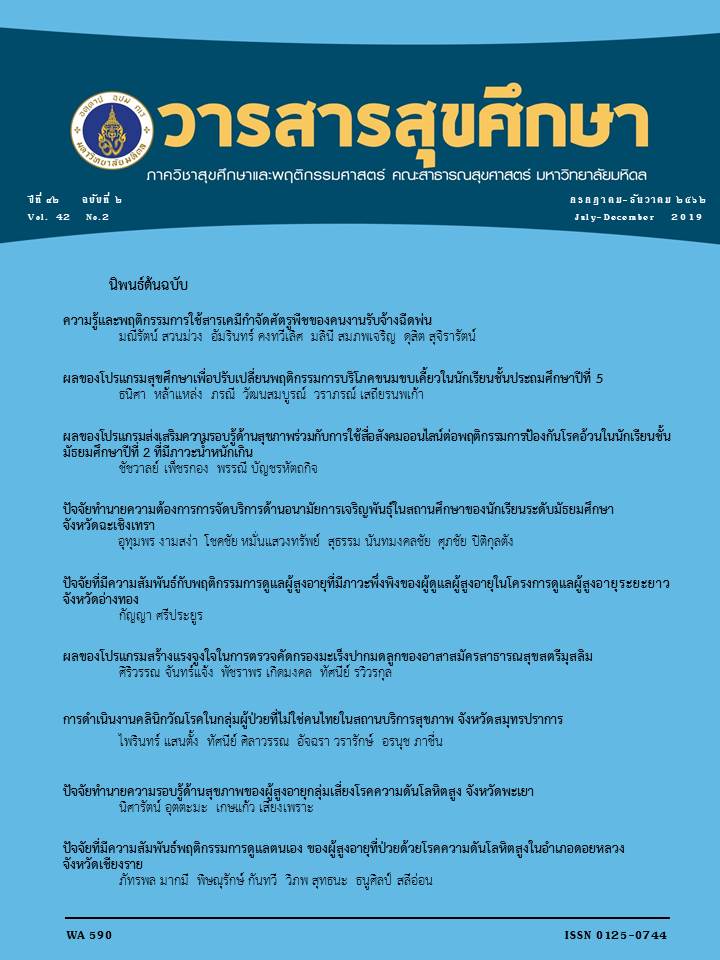Effectiveness of a Self-Efficacy Enhancement Program on Using Wheelchair of Patients with Spinal Cord Injury
Keywords:
Self-Efficacy, Wheelchair training, Spinal Cord InjuryAbstract
The quasi-experimental research, two group pretest-posttest design was aimed to study the effects of a self-efficacy enhancement program on using wheelchair. The 36 subjects with spinal cord injury who have been using a manual wheelchair no more than 6 months and aged 20 years or older participated in this study, were equally randomized into either an experimental or a comparative group. The experimental group was intervened through a self-efficacy enhancement program on using wheelchair 1.5 hours per session for four times while the control group attended regular services. Data was collected by a valid and reliable questionnaire (IOC > 0.80). The data were analyzed by descriptive statistics, Chi-square, Wilcoxon signed rank test and Mann-Whitney U test.
The results indicated that after attending the program, the experimental group has significant improvements in terms of knowledge, self-efficacy, outcome expectations of wheelchair use, and wheelchair skills (p < 0.05). This significant statistics are higher than the comparative group. Conclusion, a self-efficacy enhancement program on using wheelchair has a positive effect on wheelchair skill training. This program could be one of alternative approaches that might be beneficial for persons with spinal cord injury to improve their wheelchair skills.



